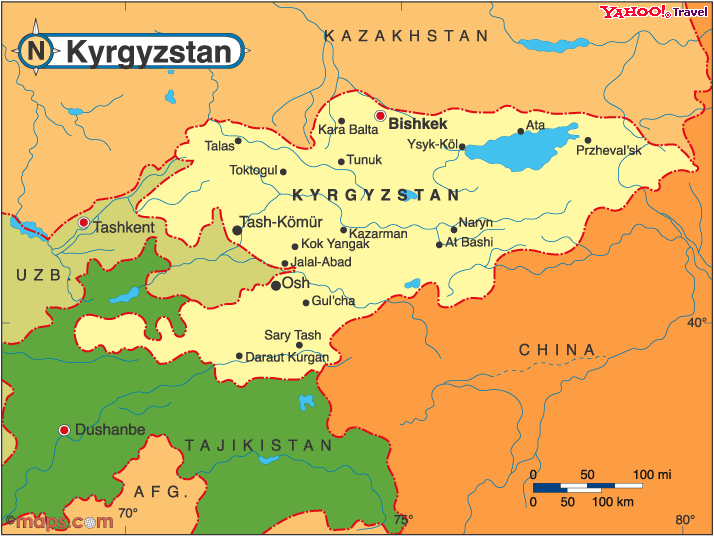Koch Kor is not a major trade destination but huge volumes of goods pass through the town. Koch Kor sits along one of the country’s main highways leading from the capital to the
Koch Kor hosts an organization called Community Based Tourism Kyrgyzstan CBT-Kg . This NGO is dedicated to connecting tourists inclined to a somewhat grittier itinerary with locals who live somewhat gritty lives in astoundingly beautiful location. The goals of the organization are three fold: to increase the standard of living of the member families, to preserve traditional cultural through tourism and to preserve the natural environment. The
The organization accommodates travelers who do not speak local languages and appreciate the security of working with a well-established business but want their money to go to average families, rather than businessmen in Bishkek. Locals get assistance getting involved in the tourism industry. The prices work great for everyone involved: $20/day includes transportation along rough mountain roads, a guide/translator, three homemade authentic native meals, and a place to sleep. The money then gets divided amongst the driver, guide/translator and host family. Each of whom earns a good local wage. Travelers get cheap, authentic and feel morally upright. Locals get sound sustainable income and can continue living a more traditional way of life.
There are a couple of faults or deficiencies. For travelers that want a well-polished experience, CBT may not be the best fit. All of the guides/translators I met (perhaps 5 in all) were current students or recent graduates of a Kyrgyz university. Their service seemed to me to be precisely adequate. Every need was met but there was something lacking that was hard to put my finger on but I think it boiled down to a lack of experience/confidence. Often there was little communication about what was going to happen. When people are in a new place and have no idea what is going on, it generally puts them at ease to give them a little heads up of what to expect and a couple little tidbits to help people appreciate what they see.
On the other side of the equation, it was unclear to me if CBT offered much in the way of growth opportunities for locals. The income sound and well distributed but seemed limited to the low-budget adventure traveler. That’s a good market to have cornered in
I am using CBT to improve my Kyrgyz. The families live in places where Russian is not spoken and there are few, which is to say no, distractions from working on the language. I stayed at a local guesthouse in the town before heading off for the final destination – Song Kul, a large lake high in the mountains well. Several families fish and herd on the shores of the lake. Though there is a road, I had plenty of time on my hands, so I elected to get there on horseback. That took 2 days. I had another week at the lake.
I had a night in Koch Kor before taking off. I stayed with a family that runs a small guest house and hosts a Peace Corps volunteer. The volunteer had just started in on her second year on site. She was in Koch Kor as a health volunteer. The health program is brand new to
Her efforts and achievement sounded familiar for Peace Corps volunteers. The first year was frustrating as the language skills were still falling into place. With no familiarity with the local social landscape, choosing a project that effectively integrates with local needs and capacities is tricky. The first effort made was to place garbage cans around the town. People frequently complain of the omnipresence of garbage in
The second project, informed by the experience of the first, was smaller and much more successful. The volunteer organized an effort to pick up trash along the
Another project was completed with the help of the American Embassy. Each
For this school year the volunteer is planning to organize and present a tooth brushing clinic at local schools. She also hopes to arrange a funding for a meeting room to be jointly used by CBT for training its local members and for local health professional meetings/seminars. Its odd to hear, but currently there is no such suitable place in the town.


No comments:
Post a Comment